Take an exclusive sneak preview inside an exciting new exhibition on Southport’s history opening at the Atkinson on Lord Street this Saturday (14th January 2023).
‘The Promenade: A Leisurely Stroll Along Southport’s Seafront’ features many rare paintings, drawings, posters, ceramics and memories of playful days strolling along Southport Pier, The Promenade and around town in the 19th and 20th centuries.
There is a beautiful Victorian dress on display, conjuring memories of ladies in their finest fashions would amble around the beautiful seaside resort.
The exhibition is free to attend, and runs until 11th March 2023.
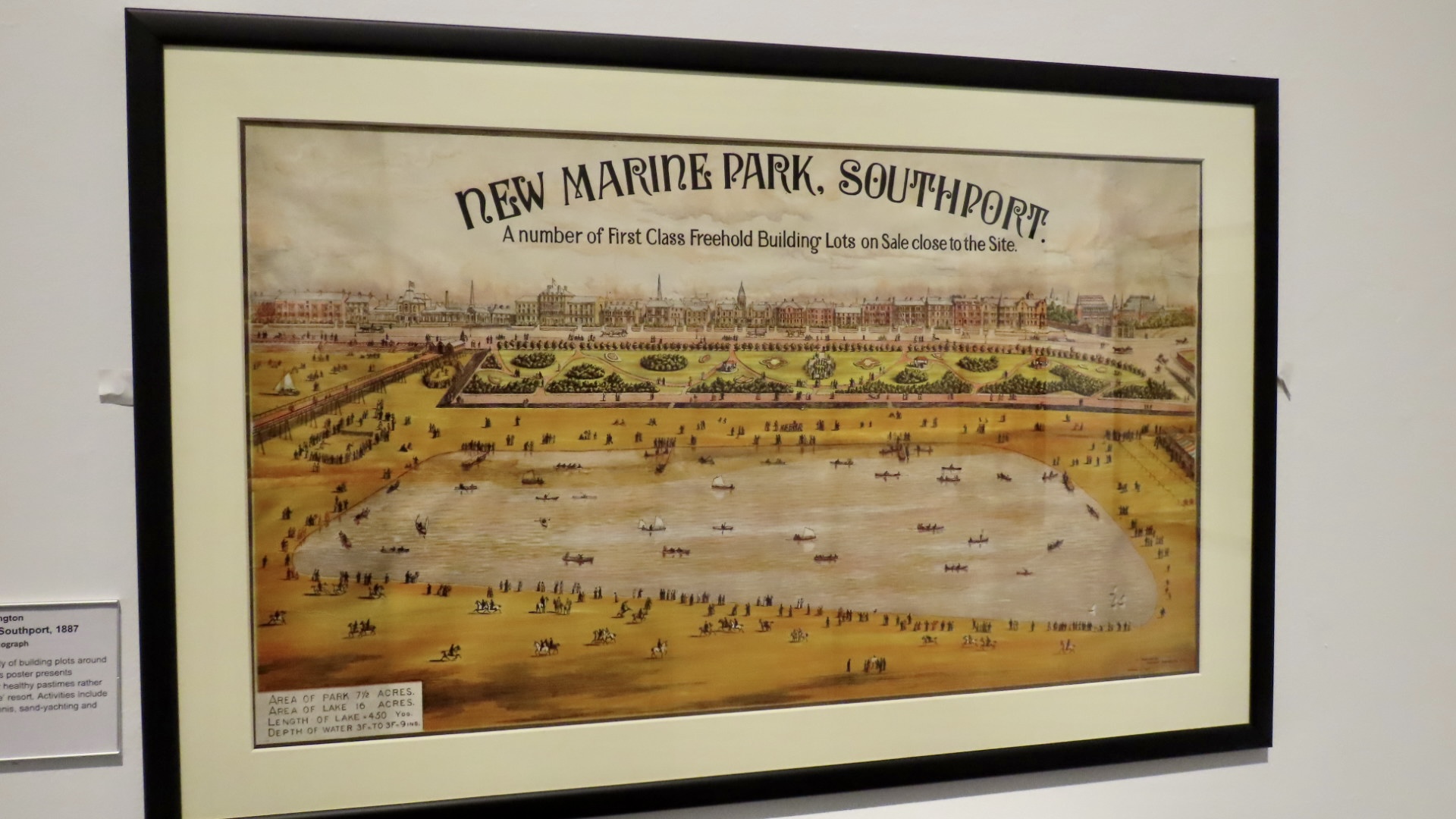
Southport became established as a fashionable resort in the first decade of the 19th century.
It was seen as a healthy retreat from the heavily polluted towns and cities of industrial Lancashire by the growing middle classes.
In 1805 George Alexander Cooke, an early travel writer, described its clear air and pure
seas as ‘…very congenial to weak and relaxed habits’.
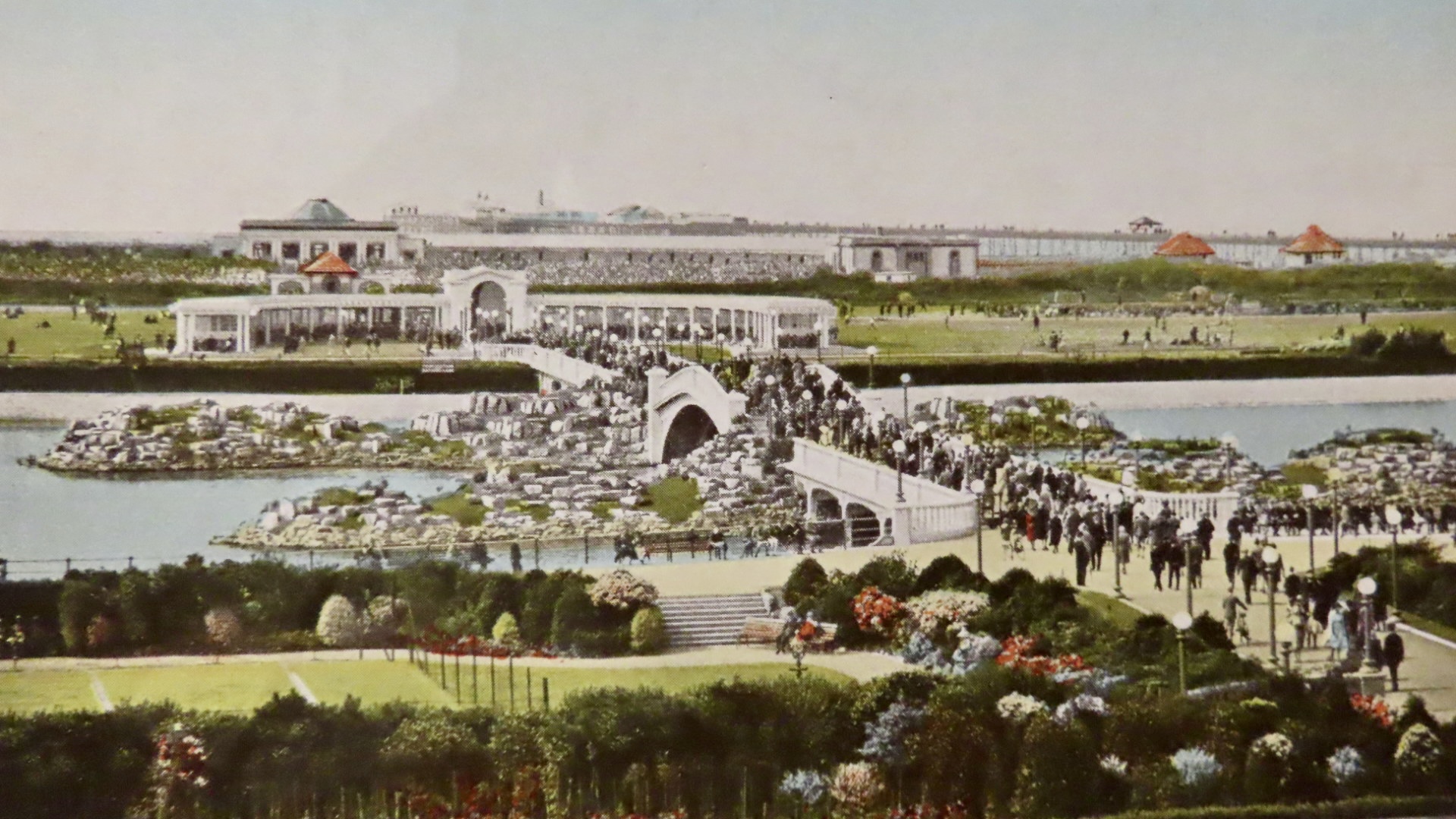
It wasn’t long before Southport was being compared to the French university town of Montpellier, which was regarded as the leading European centre for the study of medicine. Southport’s reputation as an up-and-coming spa rested on its unspoiled beaches and extensive landscape of sand dunes.
Visitors were encouraged to follow a regime of sea-bathing, boat trips and healthy walks along the coast.
Until the late 1830s the main area for walking was along the beach as further inland the sand dunes were too high and the sand too soft for an enjoyable stroll.
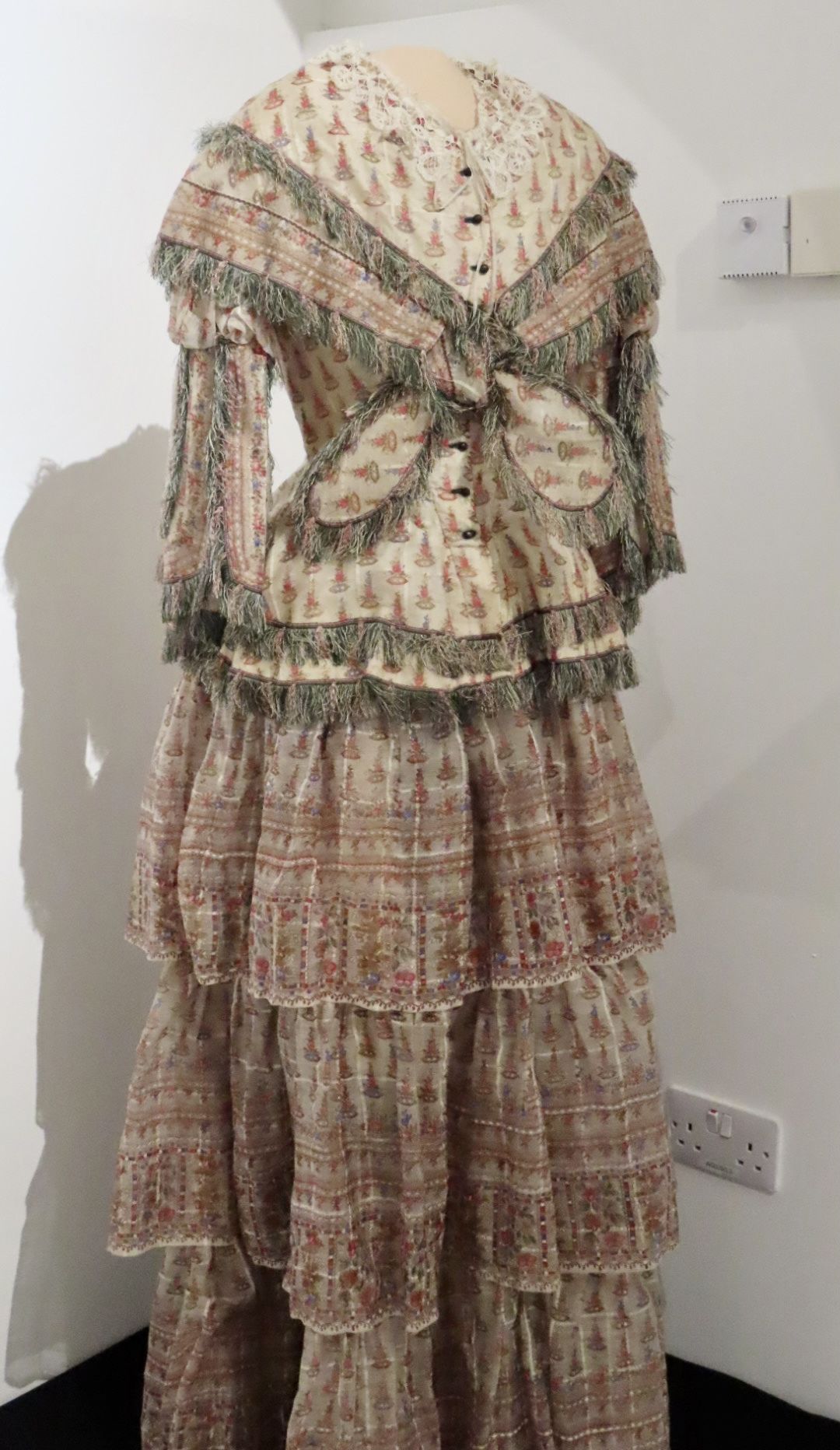
However, as the town developed, drifting sand made access down to the shore more difficult and Southport’s Improvement Commissioners decided to create a promenade to keep both the sea and the sand in check as well establishing a place for Southport’s fashionable gentry to be seen in their finery.
The Promenade
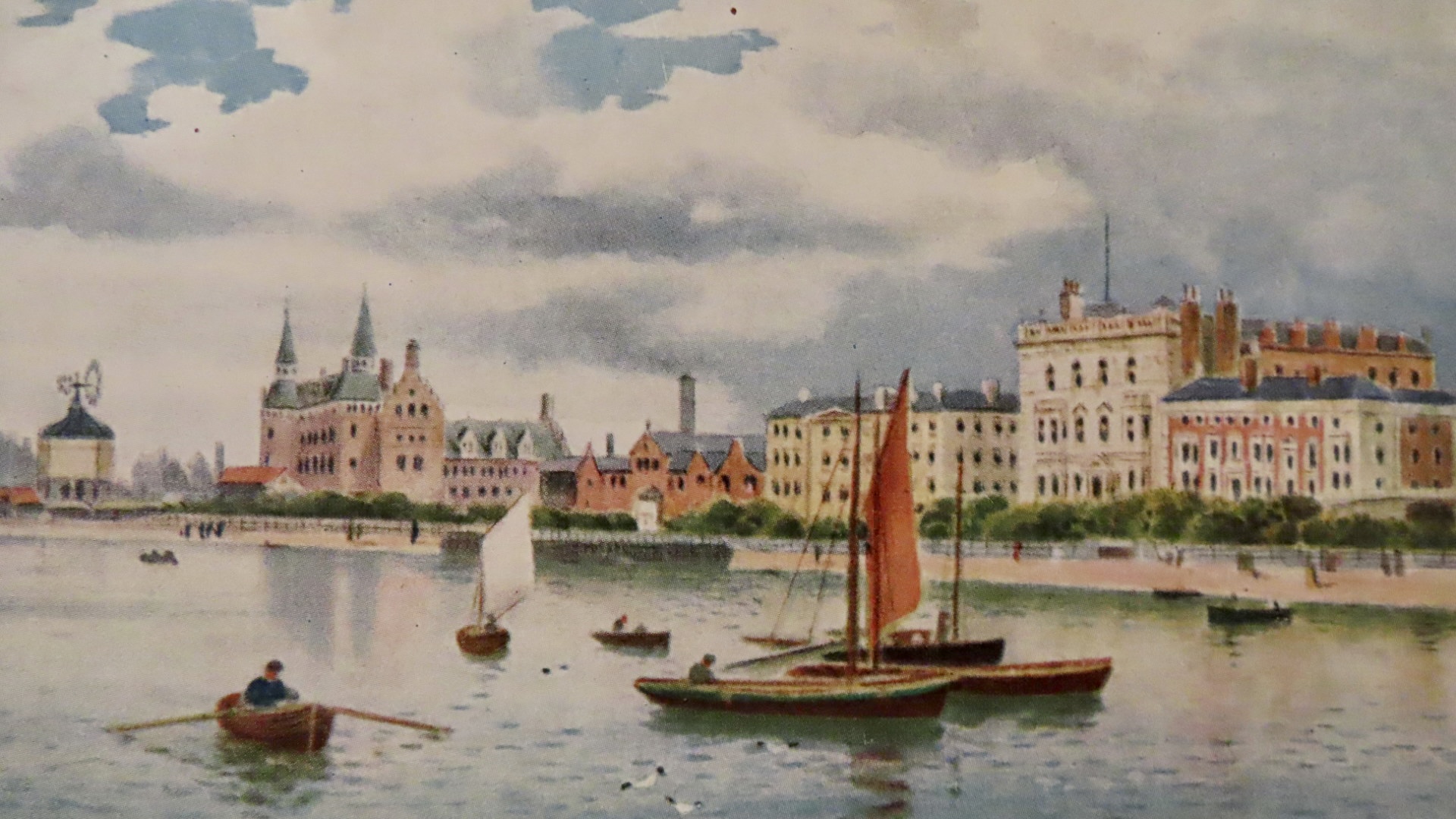
The foundation stone for a sea wall was laid in 1835, creating a promenade that was originally intended to stretch from Coronation Walk to Nevill Street.
The sea wall was extended in both directions however and substantial buildings like the Victoria Baths and hotels like Claremont House and the Victoria Hotel were built as well as a number of private villas.
One of the most distinctive early buildings on the promenade was the Lodge at the south end of the promenade.
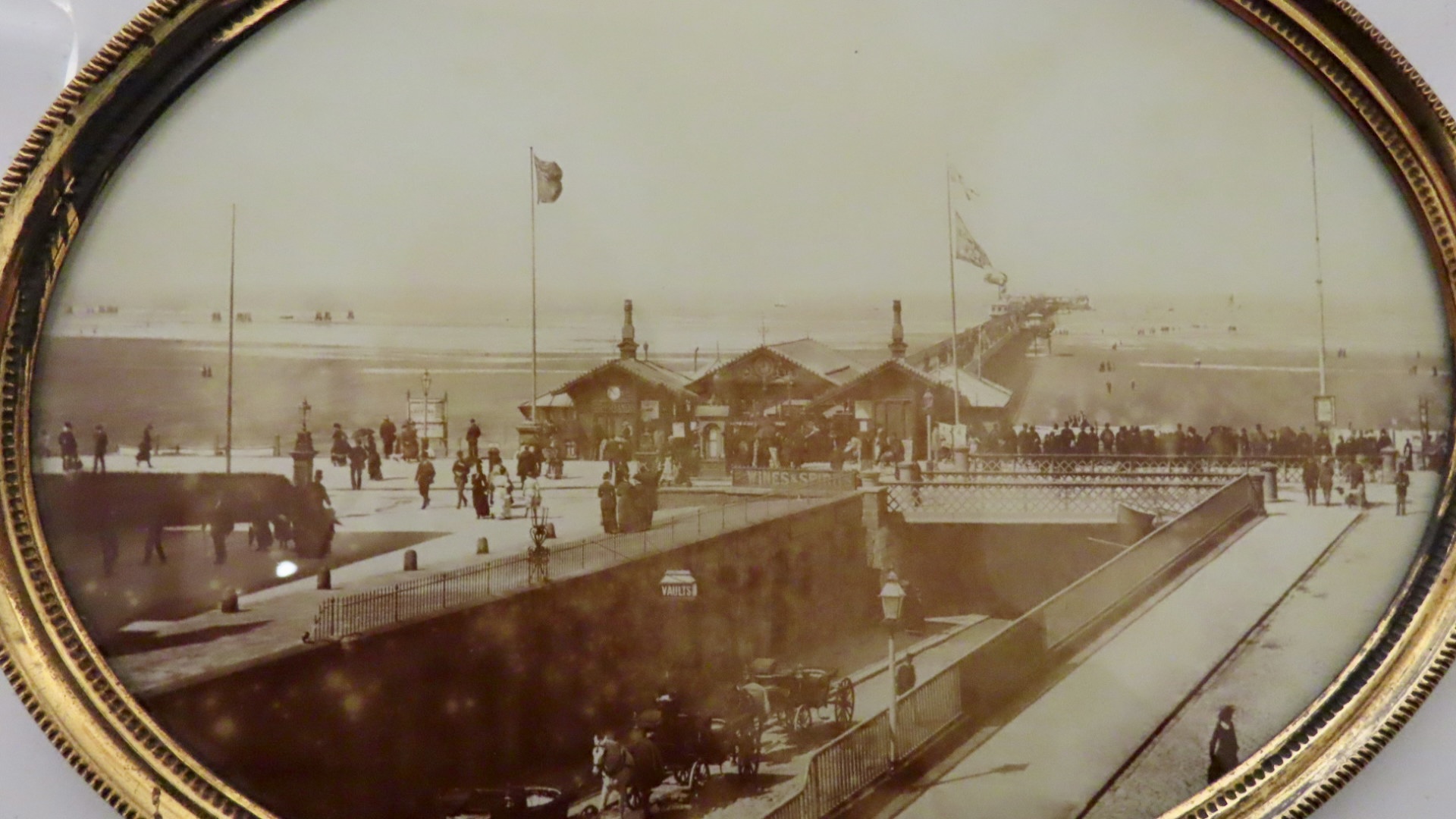
Access to the promenade was only possible via steps at the back of the Lodge or from Nevill
Street. Visitors and residents alike were charged one penny for each visit.
The Victoria Baths provided indoor bathing and extended the holiday season well into the autumn. A number of early 19 th century paintings feature a circular reservoir on Southport beach used to supply the indoor baths.
It was thought that the new baths would put an end to sea bathing but it remained a popular
attraction with over seventy bathing huts being recorded in the early 1840s.
Southport Pier
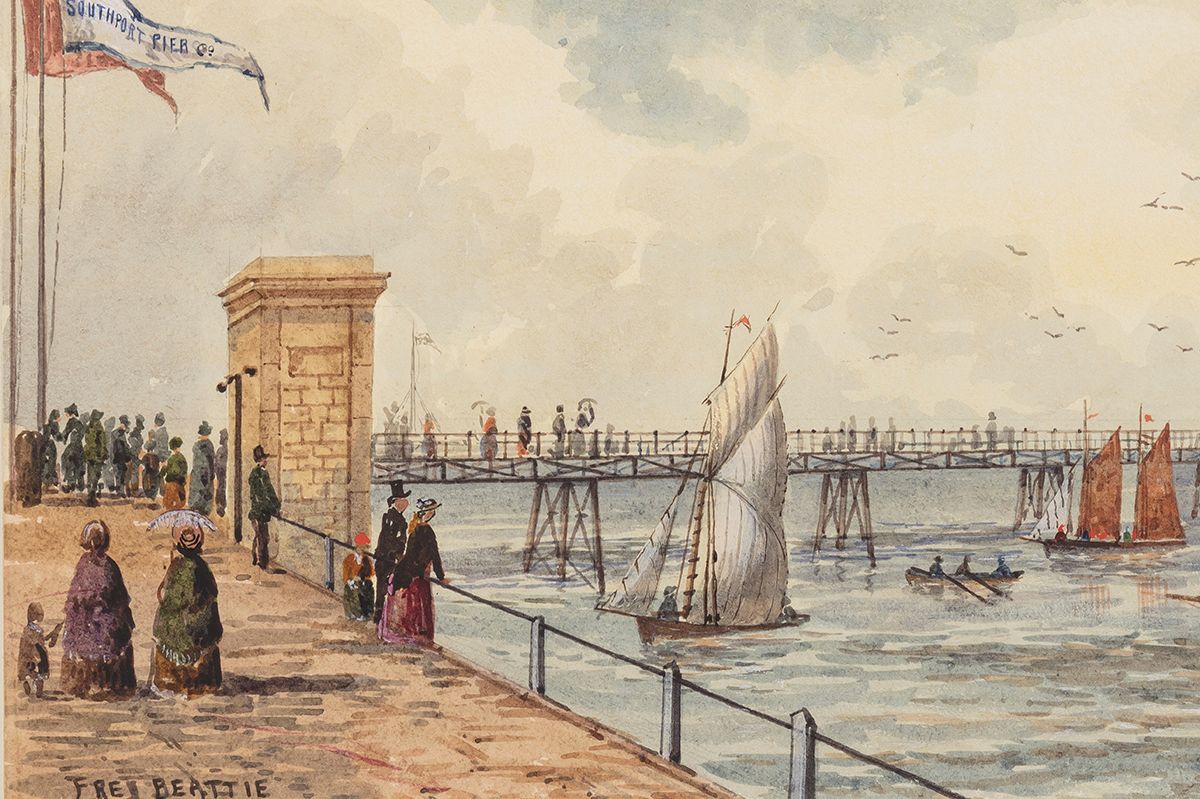
Before Southport pier came into existence the fishermen of Southport built their own jetty.
As well as using it to take day-trippers to their pleasure boats, it was also used as a makeshift pier with visitors paying a small fee to stroll along it.
The idea for a fully developed pier was put forward in 1844.
Plans for the ‘Southport Extension Railway Pier and Promenade’ envisaged a railway pier with ships unloading holiday visitors and goods.
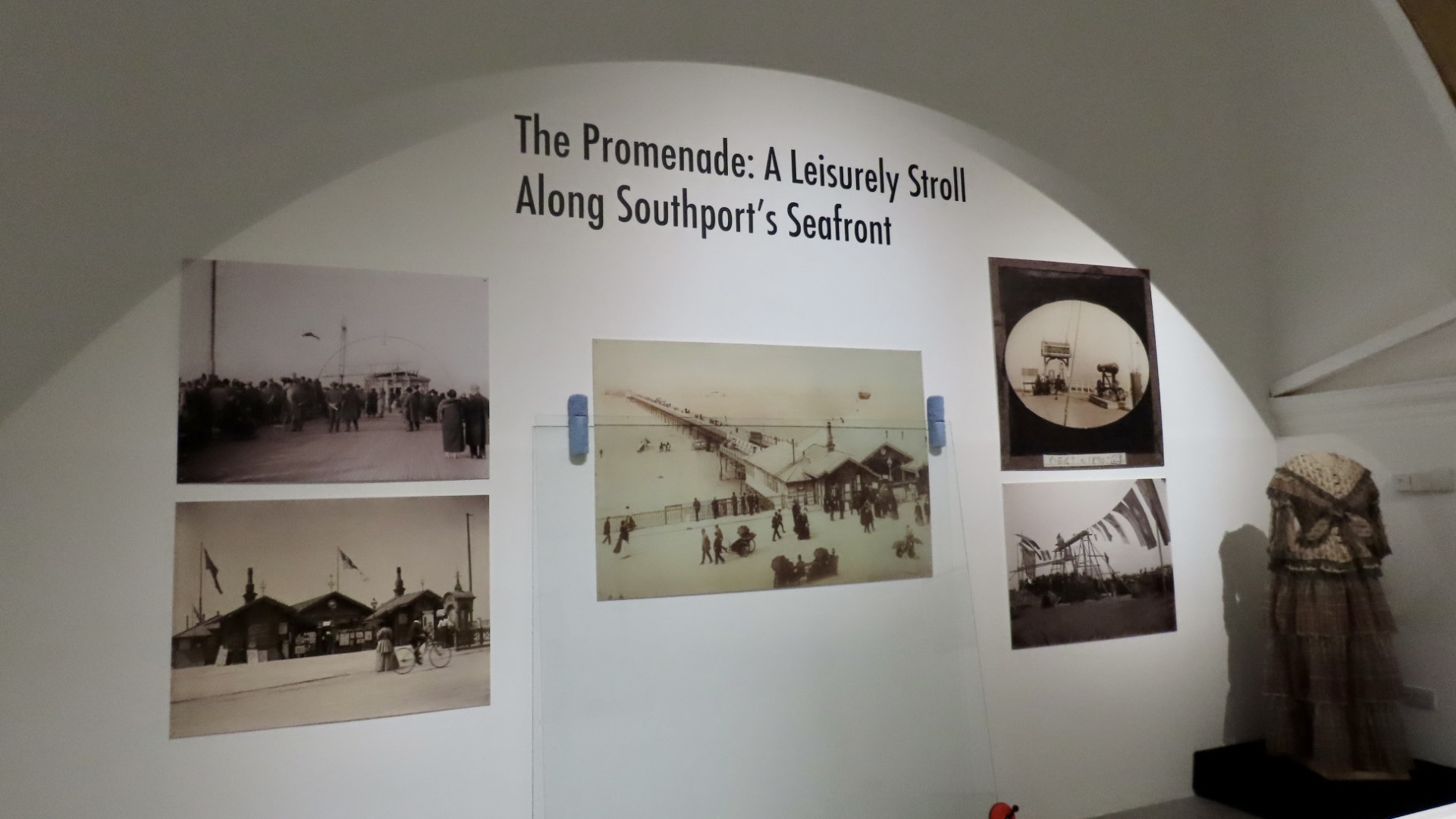
The focus changed to a more leisure-oriented pier by the late 1850s and work eventually began in August 1859 with the pier opening exactly a year later.
Because of the great length of the pier, in 1863 a tramway was built down the centre of the walkway operated by a stationary engine.
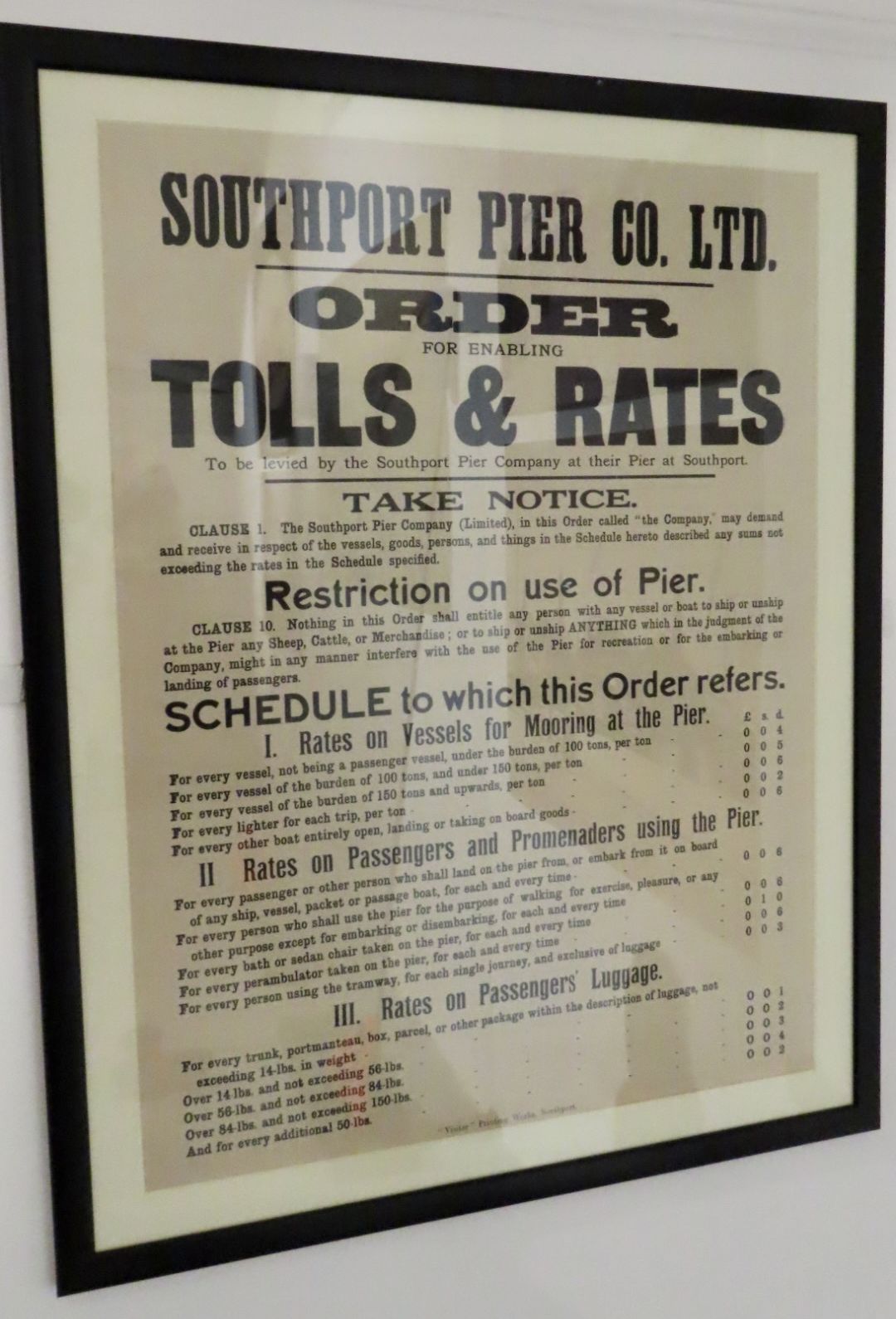
The pier was widened a year later as promenaders complained that the tramway spoiled their walk and it was moved to one side.
Steamer services landed at the end of the pier, sailing to Blackpool and Lytham until 1913 when the silting up of the beach made the pier inaccessible to larger ships.
Strolling Around Town
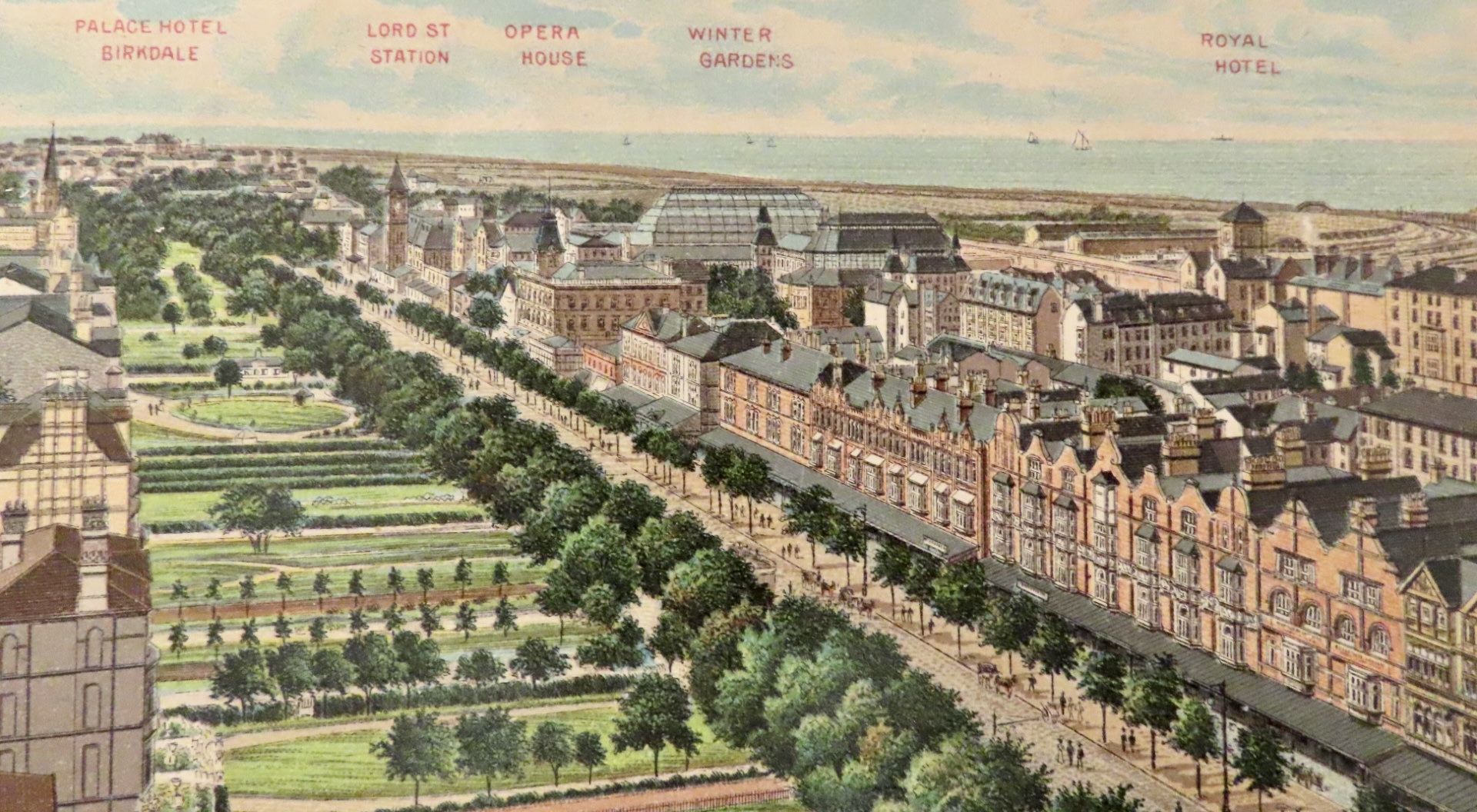
Before the promenade was opened Southport’s early visitors and residents strolled along a central street 80-eight yards wide, ‘…composed of handsome brick houses, with large gardens in front…’.
The main street only became known as Lord Street (originally Lords Street) in the early 1830s. The buildings were arranged on either side of a sandy valley that often flooded in winter.
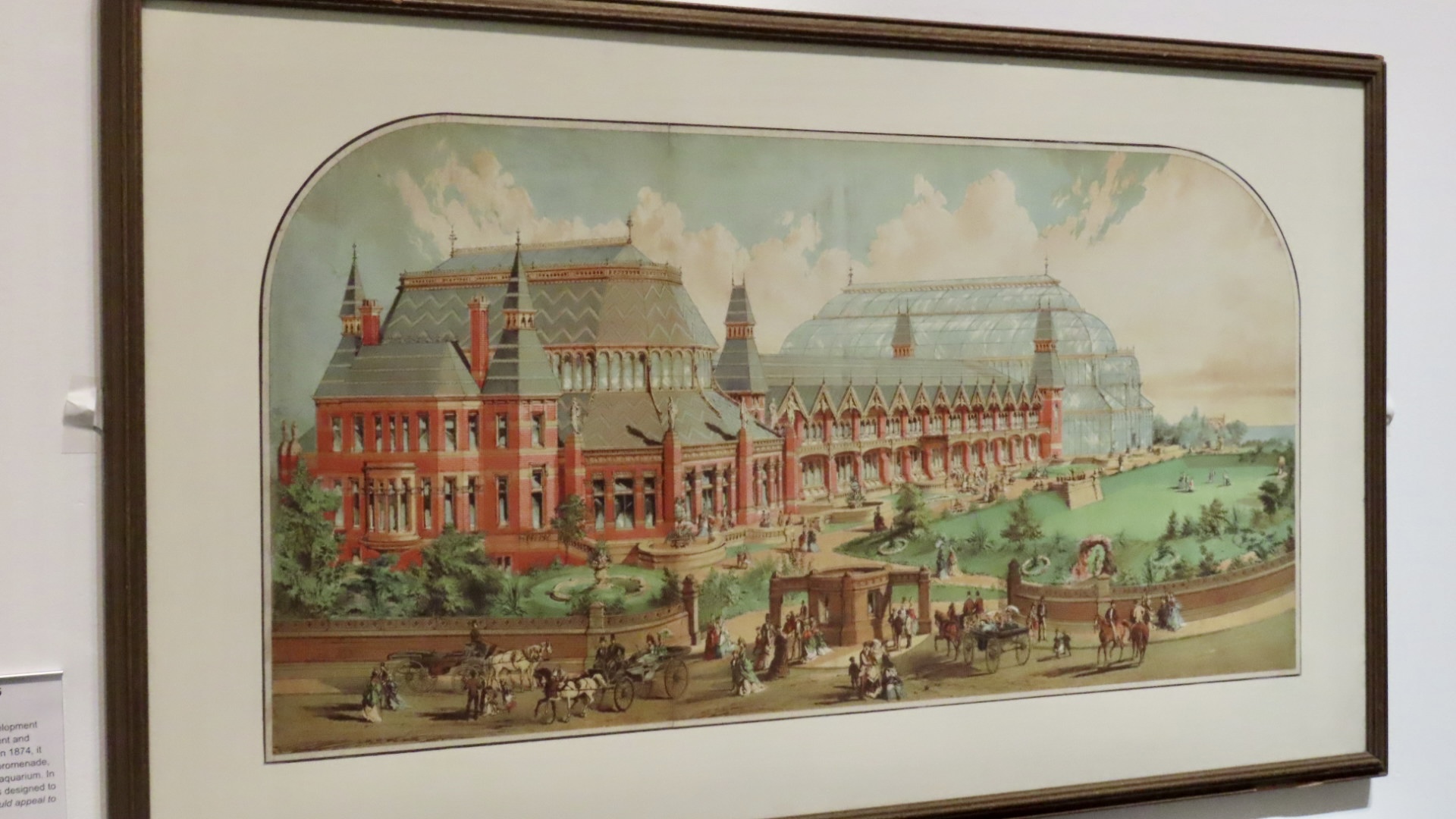
Lord Street developed into a very fashionable shopping street, with houses and gardens facing towards the sea and shops on the opposite side of the road. Because the street was so wide, in 1864 the town’s Improvement Commissioners decided to create a boulevard on the inland side of Lord Street with public gardens and broad tree-lined paths.
Southport’s town council was always keen to extend the holiday period as much as possible. Shoppers were encouraged to parade along Lord Street beneath the longest run of wrought-iron and glass verandahs to be found in Britain, perhaps the most distinctive feature of the town.
In 1874 an indoor promenade was created in the form of the Winter Gardens.
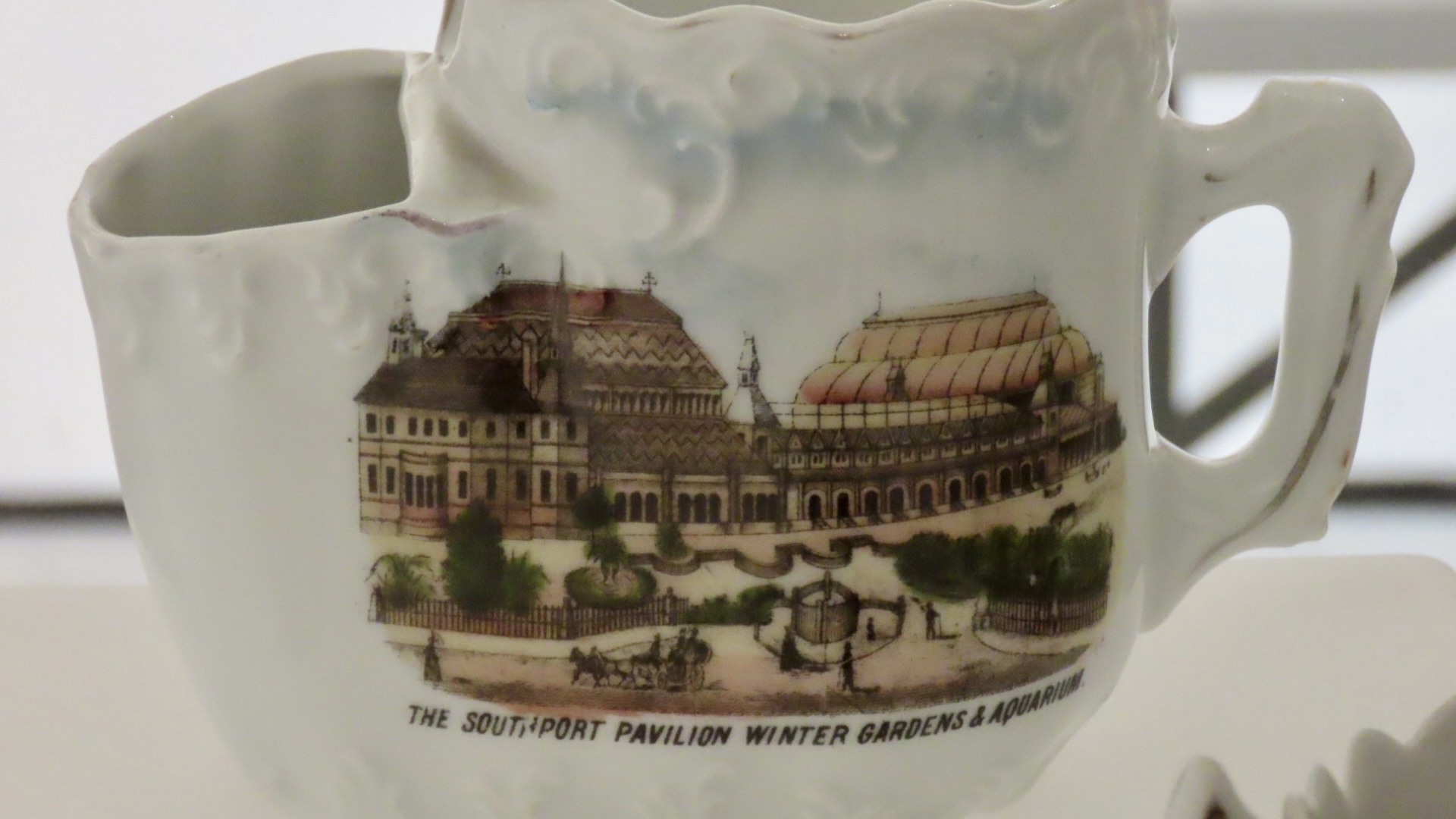
A ‘miniature Crystal Palace’, the Winter Gardens contained a large conservatory, an aquarium, exhibition spaces and a concert pavilion.
The Promenade: A Leisurely Stroll Along Southport’s Seafront is at The Atkinson, Lord Street, Southport, 14 January – 11 March 2023. Visit: theatkinson.co.uk/exhibition/the-promenade
Do you have a story for Stand Up For Southport? Please message Andrew Brown via Facebook here or email me at: mediaandrewbrown@gmail.com






